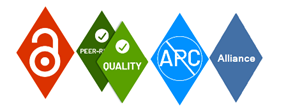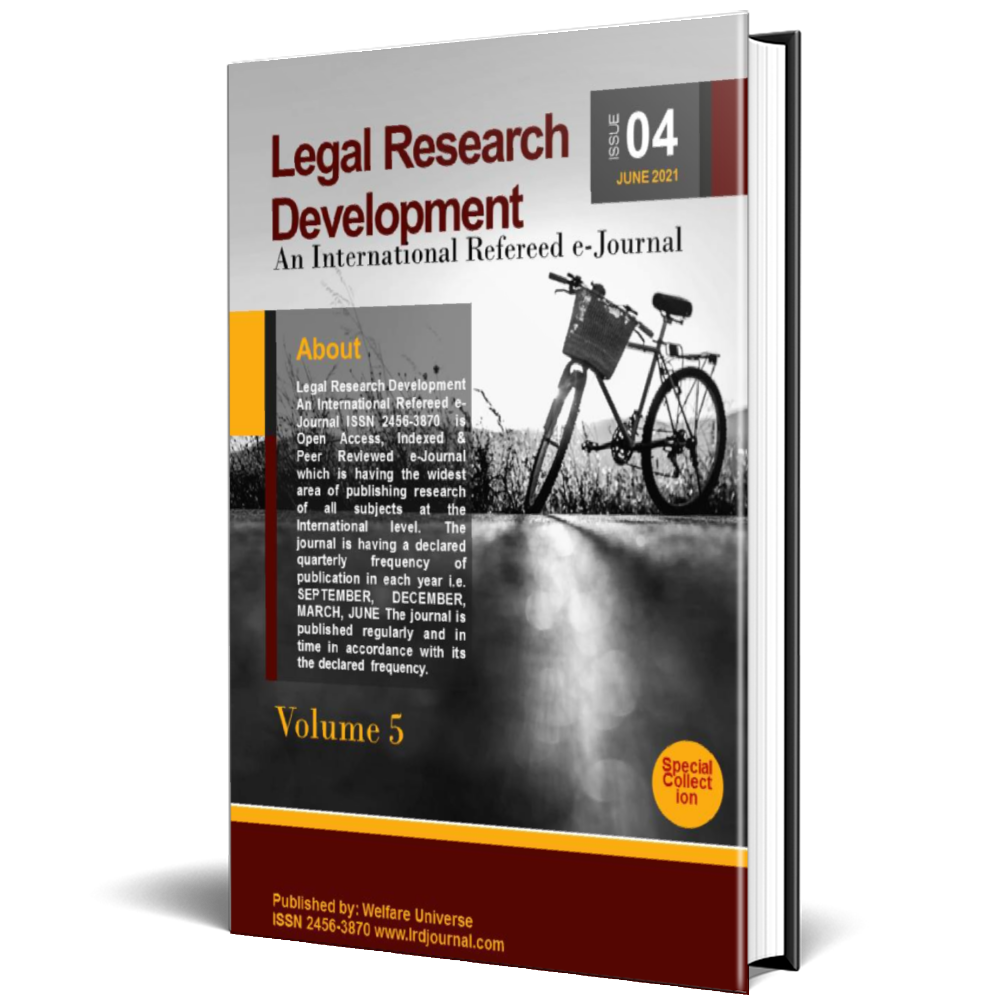Breaking Silence, Building Equality: The Resonance of #Metoo in the Symphony of Gender Inclusivity
DOI:
https://doi.org/10.53724/lrd/v9n1.2Keywords:
Social norms, harassment, cultural influence, legal dynamics, consent, legal provisions, power imbalances, stereotypes, solidarity, #MeToo, gender equality, inclusivity, empowerment, and legal frameworksAbstract
This paper critically examines the multifaceted impact of the #MeToo movement within legal frameworks, exploring its influence on gender equity, inclusivity, and empowerment. Delving into the revelation of previously silenced experiences, it assesses the path toward dismantling societal norms contributing to gender-based discrimination and evaluates the existing legal provisions.
The resonance of #MeToo extends beyond exposing instances of harassment; it represents a collective assertion against systemic issues, urging transformative change. By analyzing its cultural impact, the paper investigates evolving legal dynamics concerning gender relations, focusing on the ramifications of societal attitudes toward harassment and assault. The movement's role in amplifying voices and encouraging legal accountability is examined as a pivotal step toward fostering a culture rooted in consent and respect.
In the evolving legal landscape surrounding gender inclusivity, this paper explores how #MeToo shapes a more equitable society. It underscores the imperative of sustained efforts in dismantling power imbalances, challenging stereotypes, and fostering environments that empower individuals of all genders—all while considering and evaluating existing legal provisions. The paper concludes by emphasizing the ongoing significance of conversations, legal advocacy, and solidarity in maintaining momentum toward a harmonious, inclusive, and just future.
References
Endnotes:
(1997) 6 SCC 241.
(Civil Appeal No. 2482 of 2014).
Other Citation:
Adams, A. (2018). The #MeToo movement and the fight to end workplace sexual harassment. Employee Responsibilities and Rights Journal, 30(4), 213-217.
Bates, L. M., & Mulvey, A. (2020). Transforming the cultural landscape: The #MeToo movement and its implications for organizational research and practice. Journal of Management, 46(6), 1019-1039.
Bryant, E. A. (2019). Beyond #MeToo: Challenging cultural narratives through survivor storytelling. Feminist Media Studies, 19(6), 909-925.
García, N. M. (2018). Legal responses to the #MeToo movement: How the law is evolving in the era of social media activism. Harvard Law Review, 131(4), 1578-1610.
Harris, L. T., & Collinson, D. L. (2019). #MeToo and the paradoxes of contemporary organizational and societal change. Organization, 26(5), 623-636.
Jones, R. K., & Peralta, R. L. (2019). #MeToo in the workplace: Understanding the impact of organizational practices on women's career development. Human Resource Management Review, 29(1), 78-88.
Kumar, A. (2020). #MeToo movement in India: A critical analysis of its implications for gender justice. Indian Journal of Gender Studies, 27(1), 109-127.
Nixon, E. R., & Hall, J. M. (2018). The #MeToo movement: A model for the use of social media in social justice. Journal of International Women's Studies, 19(7), 12-24.
Smith, K. D., & Mackie, E. J. (2021). The legal implications of the #MeToo movement: A comparative analysis. International Journal of Law, Crime and Justice, 65, 101641.
Williams, L. R., & Christian, M. (2019). Beyond #MeToo: A feminist perspective on sexual harassment, intersectionality, and power. Gender & Society, 33(2), 185-209.
Anderson, M. L., & Torrance, B. S. (2020). Voices from the #MeToo Movement: Analyzing narratives of survivor empowerment. Journal of Interpersonal Violence, 35(23-24), 5475-5497.
López, S. J., & Rodriguez, L. M. (2019). The intersectionality of #MeToo: An exploration of sexual harassment experiences across multiple marginalized identities. Psychology of Women Quarterly, 43(4), 484-499.
Schneider, M., & Owens, J. (2021). Reimagining organizational responses to sexual harassment in the #MeToo era: Insights from social movement theory. Academy of Management Review, 46(1), 174-193.
Mueller, A., Wood-Doughty, Z., Amir, S., Dredze, M., & Nobles, A. L. (2020). "Demographic Representation and Collective Storytelling in the Me-Too Twitter Hashtag Activism Movement." arXiv preprint arXiv:2010.06472. [https://doi.org/10.48550/arXiv.2010.06472]
Dadas, C. (2020). "Making Sense of #MeToo: Intersectionality and Contemporary Feminism." Peitho Journal, 22(3). [https://cfshrc.org/article/making-sense-of-metoo-intersectionality-and-contemporary-feminism/]
Jaffe, A. E., Cero, I., & DiLillo, D. (2021). "The #MeToo movement and perceptions of sexual assault: College students' recognition of sexual assault experiences over time." Psychology of Violence, 11(2), 87–97. [https://doi.org/10.1037/vio0000290]
PettyJohn, M. E., Muzzey, F. K., Maas, M. K., & McCauley, H. L. (2019). "#How I Will Change: Engaging men and boys in the #MeToo movement." Psychology of Men & Masculinities, 20(4), 612–622. [https://doi.org/10.1037/men0000209]
Clark, R. (2014). "#NotBuyingIt: Hashtag feminists expand the commercial media conversation." Feminist Media Studies, 14(6), 1108–1110. [https://doi.org/10.1080/14680777.2014.975473]
Downloads
Published
How to Cite
Issue
Section
License
Copyright (c) 2024 Legal Research Development

This work is licensed under a Creative Commons Attribution-NonCommercial 4.0 International License.










